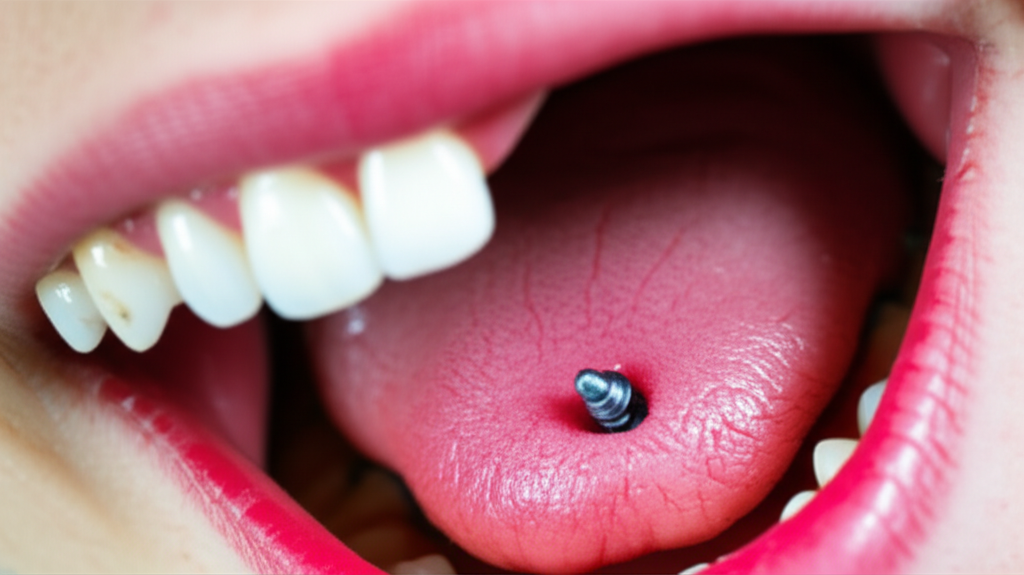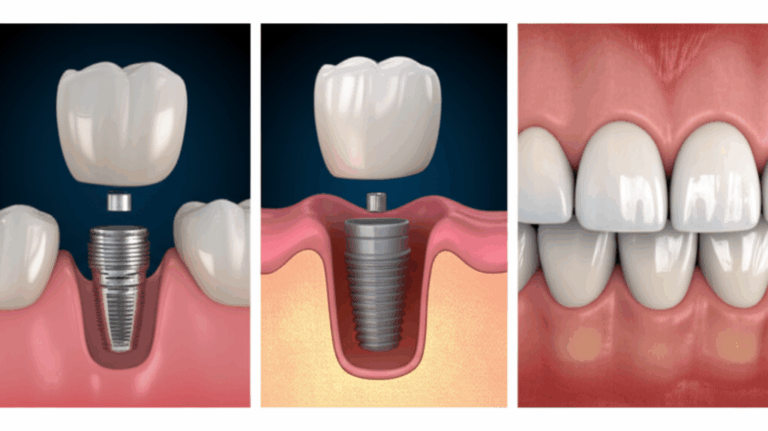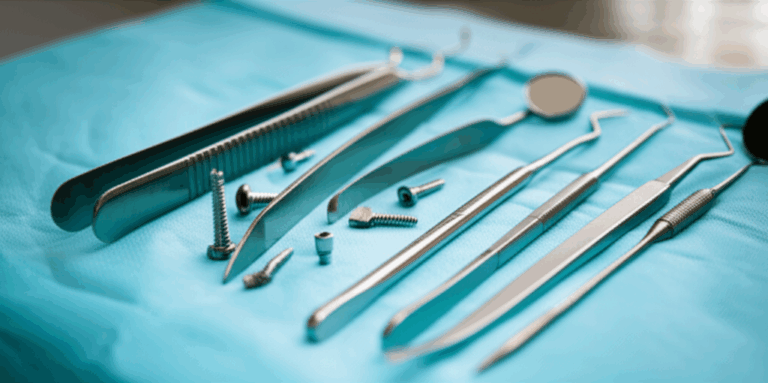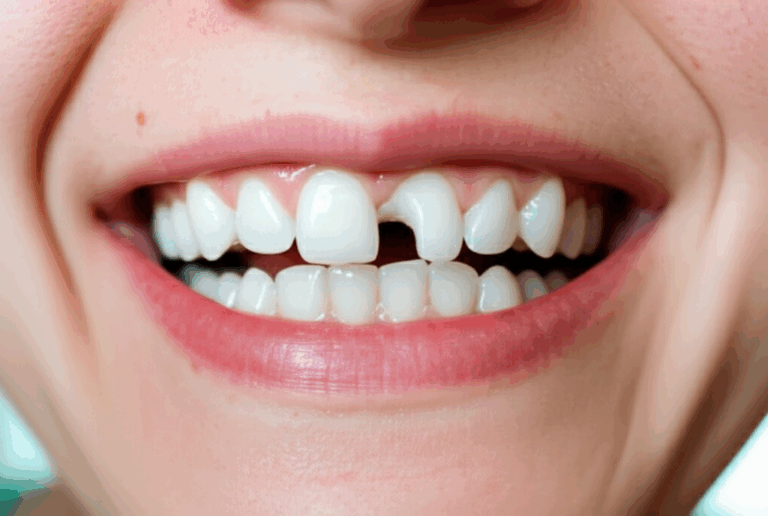
Dental Implant Fell Out? Here’s What To Do—A Clear, Trustworthy Guide
That moment when you run your tongue along your gums—and something doesn’t feel right. Maybe you find a loose tooth-like piece in your mouth. Or maybe you notice a gap where your dental implant should be. If your dental implant just fell out (or part of it did), you might be feeling a bit scared. You’re definitely not alone.
This guide is written for you—the everyday person who just wants to know what happened, what to do next, and how you can get your smile back on track (without making an already stressful moment worse).
We’ll walk through, in plain English:
- What to do right away (should you try to put it back? Spoiler: nope).
- Why dental implants sometimes fail.
- What kinds of fixes might be needed.
- How to stop this from happening again.
- And, most importantly, how to stay calm and look after your health.
Let’s get started.
In This Article
What We’ll Cover:
- Is This Dental Emergency Normal?
- Immediate Steps If Your Dental Implant Falls Out
- Why Did My Dental Implant Fall Out?
- What Happens Next At The Dentist’s Office?
- How Can I Prevent Dental Implant Failure In The Future?
- FAQs About Failed Dental Implants
- Proactive Takeaways For Your Health
Is This Dental Emergency Normal?
Let’s start with the worry in your mind: Is this normal? Quick answer: While dental implant problems are pretty rare, they do happen.
- Dental implants have a success rate between 95% and 98% over ten years—which means they are very reliable, and most people will never run into this.
- But with millions of implants placed around the world, a 2–5% failure rate means thousands of people just like you have a loose, broken, or fallen-out implant every year.
It’s Okay to Feel Worried—But Don’t Panic
Losing an implant is a health issue, not a sign you haven’t done something right. Even with good mouth care, implants can fail for reasons you can’t control. The most important thing right now? Take calm, quick action.
Immediate Steps If Your Dental Implant Falls Out
Let’s get practical. Here’s what you should do, step by step, if any part of your dental implant (the whole thing, just the cap, or a screw) comes out:
1. Pick Up and Save the Implant
- Pick up all pieces you see—the fake tooth (crown), metal screw (abutment), or the implant itself (it can look like a tiny screw).
- Gently rinse the pieces with clean water or sterile salt water.
- Put the parts in a container—ideally with salt water or milk. (Why milk? It keeps the implant parts moist and helps keep any living cells on them alive. Tap water can hurt them.)
- If you can’t find all the parts, don’t worry. Bring what you have to your dentist. They’ll check for the rest.
2. Stop Bleeding And Pain (If Any)
- Apply gentle pressure: Bite softly on a piece of clean gauze or cloth to stop bleeding.
- Reduce swelling: Hold a cold pack or ice wrapped in a cloth on the outside of your cheek for 10–15 minutes at a time.
- Pain relief: If you’re not allergic, acetaminophen or ibuprofen may help. Never put medicine right on your gum or implant spot.
3. Call Your Dentist Or Oral Surgeon—RIGHT AWAY
Don’t wait for the pain to go away. This is an emergency—even if it doesn’t hurt!
- Tell the person answering the phone your implant fell out completely (or is loose/partly out).
- Be ready to say when it happened, how it felt or sounded, and any symptoms (pain, swelling, or bleeding).
- Get an appointment for as soon as possible. If your usual dentist can’t see you, find an emergency dental clinic.
Do NOT put the implant or any part back in your mouth. This can make it worse.
4. Be Gentle With the Area
- Don’t touch or mess with the spot: No poking or using strong mouthwashes like hydrogen peroxide.
- Eat soft food and chew on the other side.
- Don’t smoke or drink alcohol—these slow down healing and make infection more likely.
Why Did My Dental Implant Fall Out?
Right now, you might wonder: What went wrong? A dental implant coming out isn’t always your fault. There are two main kinds, based on when it started:
A. Early Implant Failure (Weeks–Months After Placement)
Most early problems happen before you even get your new tooth. The reason? The implant didn’t bond well with your jaw.
What’s Going On?
A dental implant needs to stick to your bone—a process called osseointegration.
Common Causes:
- Weak bone or not enough bone
- Infection where the implant was put in
- Surgery stress (like the bone getting too hot during drilling)
- Medical problems like diabetes that’s not managed, or immune system issues
- Pressure on the implant too soon
Picture This:
Your implant post is like an anchor for a boat. Drop it in mushy, soft ground, and it never holds—you drift away with the smallest wave.
B. Late Implant Failure (Months to Years Later)
Late failures happen after you’ve already had your implant for a while—sometimes years.
Most Common Reason?
Peri-implantitis. This is a kind of gum disease—like an infection that eats away at the bone and gums holding your implant.
Other Possible Causes:
- Not cleaning your teeth well enough (letting stuff build up on the implant)
- Smoking (slows down healing)
- Too much force on the implant:
- People who grind their teeth (bruxism)
- If your bite isn’t quite right and the implant gets more pressure
- Injury (like a blow to the mouth)
- Bone loss (from gum disease)
- Parts breaking: Sometimes the crown or small screws break—often after years of eating. Usually, this can be fixed without replacing everything.
Is It My Fault?
Usually—no. Implants are great but not unbreakable. Even with good cleaning, things like bone loss or bite stress can sneak up over years.
What Happens Next At The Dentist’s Office?
When you call for help, you might worry you’re in for a painful or tough time. Here’s what usually happens—so it’s not a surprise.
1. Checkup and X-Rays
- Look: The dentist will look closely at your gums, check for swelling, infection, or any tissue problem.
- X-rays (sometimes a special 3D scan): This shows if the bone around your implant has changed, and if any “bits” are left in your jaw.
- Ask about symptoms: Any pain? Swelling, pus, or weird taste?
2. Going Over What Happened: Medical and Life Stuff
You’ll be asked about:
- Your medical history (some health problems make healing harder)
- Habits (like smoking, grinding your teeth)
- If you had any falls or accidents
- How you usually take care of your teeth
3. How Your Dentist Might Fix It
Here’s the big question—can my implant be saved, or do I need a new one?
A. Taking Out the Implant
If the implant post is loose, infected, or not stuck to bone, it has to come out. This is usually done with numbing medicine, and most people just feel a bit sore.
B. Cleaning and Adding Bone (If Needed)
- If there’s infection or bone loss, your dentist will clean it well.
- Sometimes, they’ll suggest a bone graft—adding bone (real or fake) to make the area stronger.
- This helps give you a good base for maybe getting a new implant later.
C. Putting in a New Implant
- Sometimes, a new implant can go in right away (if it looks healthy and not infected).
- Other times, you’ll have to heal first—this can take a few months, depending on how much bone was lost.
D. Other Choices if a New Implant Isn’t Possible
Not everyone can get another implant right away. In that case, dentists may offer:
- Dental bridge: Connecting a new tooth to the teeth next to the gap.
- Removable partial denture: Like a “retainer” with teeth on it, worn during the day.
- Leaving the gap (not best for chewing or looks—but sometimes needed for a bit while planning the next steps).
Curious how dental labs help in all this? Places like a crown and bridge lab or a digital dental lab make custom crowns and bridges to fix your bite after an implant problem.
E. Easing Pain and Infection
If you’re hurting or have infection, expect:
- Antibiotics (sometimes)
- Gentle care tips for home
- Checkups to make sure you’re healing
How Can I Prevent Dental Implant Failure In The Future?
Good news—you can do things to make problems less likely next time. Here’s how:
1. Keep Your Teeth Super Clean
- Brush at least twice a day with a soft brush.
- Floss every day—and use special brushes or floss for implants (ask your dentist).
- Get pro cleanings at least two times a year.
2. Protect Your Implant (and Investment!)
- If you grind your teeth, ask about a custom night guard dental lab product—a tough guard keeps your teeth safe.
- Wear a mouthguard for contact sports.
3. Quit Smoking
- Smoking makes implant failures three times more likely—it slows healing.
- If it’s tough to quit, ask your doctor or dentist. They can help.
4. Keep Health Problems Under Control
- Get conditions like diabetes under control.
- Tell your dentist if you have new health problems or start new medicines.
5. Don’t Miss Checkups
- Even if your teeth feel fine, never skip regular dentist visits. Small problems are way easier to catch and fix early.
6. Listen to All Home Care Instructions
- After any new implant, follow your dentist’s tips—how to clean, what to eat, and when to come back.
Picture This:
Think of your dental implant like a nice car. Regular wash, careful driving, and checks at the shop help it last—and keep you safe.
FAQs About Failed Dental Implants
Q: Can I put my implant back in myself?
A: No way! Never try to put it back in at home. You could push in germs, damage your jaw, or cover up infection. Bring the pieces to your dentist—they’ll know what to do.
Q: How long can I wait before seeing a dentist?
A: The sooner, the better—ideally within 24 hours. Waiting increases chances of infection and bone loss. This makes it harder and more expensive to fix. If there’s swelling, pain, or bleeding, see it as an urgent dental problem.
Q: Is dental implant failure common?
A: Not really. Success rates are 95–98%. Still, with millions done, sometimes they fail. You’re not alone, and there are good fixes.
Q: Will my insurance cover a failed implant?
A: Sometimes. Depends on your plan. Some implants have a warranty, some insurance will cover at least part of a repair or replacement. Call your insurance for details.
Q: What if I can’t find all the parts?
A: Bring what you have. Your dentist will look for any bits left in your gum or jaw—sometimes with X-rays—then plan what to do.
Q: Why is my implant moving now after years?
A: Usually it’s from peri-implantitis or bone loss. Gum infection can slowly weaken your implant until it falls out.
Q: Can I get another implant in the same spot?
Sometimes, yes. It depends on how much bone you have left, your health, and what caused the first one to fail.
Proactive Takeaways For Your Health
Here’s a quick checklist if your dental implant falls out:
An implant coming out is serious—but fixable.
Put them in saline or milk. Take them to your dentist.
Tell them what happened. Get an emergency appointment.
No home fixes!
At your visit, figure out why the implant failed—so it won’t happen again.
Brush, floss, and go to your regular visits.
Quit smoking, wear a night guard if needed, and keep your health in check.
Good implant dentistry needs both expert dentists and quality labs, whether you need a new dental implant, veneers, or a custom crown.
Need More Support?
Every situation is different. If your implant suddenly gives you trouble, don’t spend hours worrying online or panic over worst-case stories. Speak to a trusted dentist or oral surgeon for help. Most can guide you and get you back on track.
A healthy, confident smile is possible—often quicker than you think.
Quick Reference: Dental Implant Failure—Causes & Stats
| Failure Rate | 2–5% overall (95–98% success) |
|---|---|
| Early Failure (<6mo) | 1–3%—usually from slow bone healing |
| Late Failure (Years) | Most common from gum infection |
| Major Risk Factors | Smoking, unhandled diabetes, gum problems, teeth grinding, not cleaning well |
| Retreatment Success | 50–80%, better with good care and skilled dental team |
If you want to learn more about dental implant tech or how replacement teeth are made—like a tooth crown, bridge, or even full restorations—check out what modern china dental labs offer behind the scenes.
Final Encouragement
You’re not alone dealing with dental troubles—even with implants. Take a breath, pick up the phone, and give your dentist a call. Fast, expert care makes all the difference. Remember, with every bump comes a chance for a stronger, healthier smile.
References:
- American Academy of Implant Dentistry. “Dental Implant Success Rates.”
- International Journal of Implant Dentistry. “Timing and Causes of Implant Failure” (2019).
- Journal of Oral Implantology. “Etiology and Management of Implant Failure” (2018).
(This info is for general learning and doesn’t replace a real doctor’s advice. If you have urgent questions about your own case, call your dentist now.)








